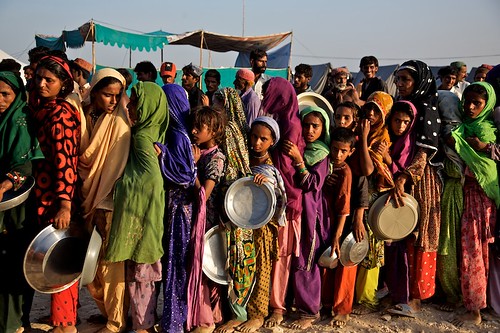by Samar Zuberi
 |
| Photo Credit: Aga Khan University – Farheen Ayub Khan |
A recent
food fortification scoping study endorses food
fortification strategies in Pakistan. The report was commissioned
by DFID Pakistan and conducted by
MQSUN. Local analysis on effective means to
address micronutrient undernourishment or ‘hidden hunger’ is much needed. Over
half of Pakistan’s population of children under 5 suffer from anaemia and
vitamin A deficiency and 39% are zinc deficient. Half of non-pregnant mothers
are anaemic, and 42% are deficient in vitamin A and, the same percentage are
deficient in zinc (NNS 2011).





